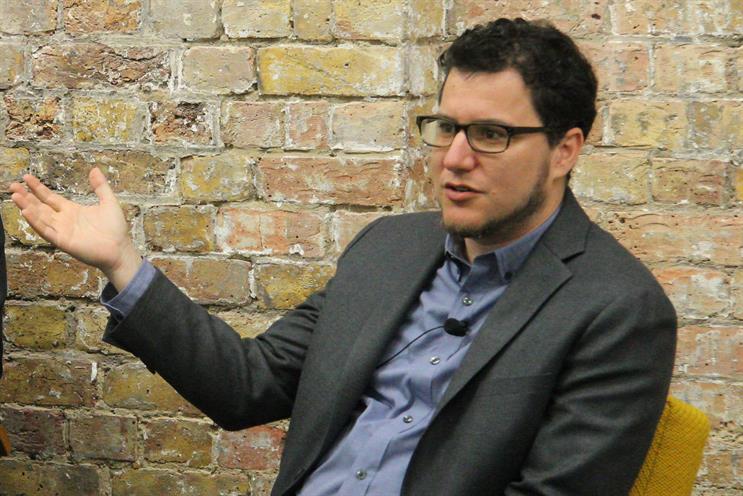Established brands have long cast covetous eyes at the agility of startups. Yes, most startups go to the wall, but having the freedom to try out new ideas without having to climb over the brick walls of bureaucracy is a thrilling if distant dream for most chief marketing officers.
But it doesn’t have to be that way. Author and entrepreneur Eric Ries (pictured above) changed the way many startups operate with his seminal 2011 book, The Lean Startup. Now he’s back with The Startup Way, which reveals how organisations of all kinds can use entrepreneurial management to transform culture and drive long-term growth.
Ries came into Zone HQ to give a talk last Thursday and described how he persuaded managers at General Electric, a 125-year-old company with 300,000 employees, to think like a startup. It was by no means easy – the GE team had prepared a five-year business plan for their new project, plus a revenue forecast for the next 30 years. It was only after Ries got the executives to admit that their assumptions were based on guesses and perceived ‘requirements’ that they were able to change their way of thinking.
It can take an outsider like Ries to help a brand see the bigger picture – to be an agent of change and "break the fantasy plans". Ries talks of "cascading consequences" if we don’t tell the truth, but it takes a brave marketer to put their hand up in a meeting and say: "Hang on, does anyone really believe these forecasts are going to be true?"
In today’s fast-paced, digital-first world the gap between startups and established brands has effectively disappeared – any time a brand invests in a new product or service, it becomes a startup and needs to act accordingly. According to Ries’s philosophy, this means setting up a small, "atomic" team with a distinct organisational structure to support it, and then giving it the means and freedom to experiment and innovate. This team needs to be represented across the departments, so that means marketers, designers and even compliance being involved right from the start.
And failure has to be an option – indeed, failure is necessary and inevitable in an entrepreneurial mindset. But if a brand adopts startup principles, it can learn from these failures quickly, continuously iterate its product and decide whether to pivot or persevere.
Large brands are sometimes reluctant to put a raw product in front of their customers, but getting a minimum viable product in front of our target audience allows us to learn more quickly and discourages us from assuming we know what they want. This has to be a positive outcome for marketers, because it means they can have real confidence that the product they are selling is meeting consumer needs, based on testing.
If 25 years in marketing has taught me anything, it’s that things always change. And there are practical lessons for me as chief operating officer here at Zone, as we embark on our own journey as part of a bigger organisation – we were acquired by the global professional services giant Cognizant last month. Change now happens faster, and more frequently. But if marketers acknowledge this from the outset, this can be an opportunity rather than a threat. It’s a question of setting up our teams so we are in a position to be agile and react to changes in circumstances, and able to innovate at pace.
As Ries says, a lot of companies would rather die than be inconvenienced. But doing nothing is not the safe choice. Brands of all sizes need to harness the creative minds within them and give them the opportunity to make their ideas a reality. By baking entrepreneurship into their culture, they can flourish in these turbulent and fast-changing times.
Karen Byrne is chief operating officer at Zone


